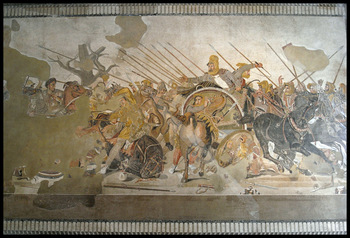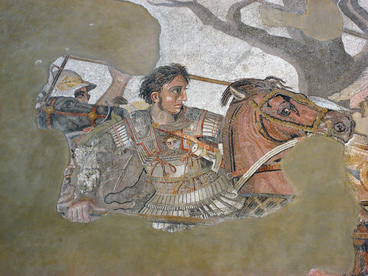BACKGROUNDPlacing a date to when Classical Greece actually started is difficult to to determine due to the many time periods associated with Greece. Classical Greece is most commonly dated at 510 BC- 323 BC. Classical Greece is considered to have started to end when King Philip II defeated the Greek city states in around 339 B.C. roughly and conventional ending with the death of Alexander the Great in 323 BC ("Classical Greece").
|
HUMAN IMPACT ON ENVIRONMENT
The land of Greece is unstable with bad soil and not ideal for farming. Due to the fact that Greek land is already not suitable for farming and crops, they weren’t exactly able to “abuse” the land like many societies typically do by over harvesting. The few crops that ancient Greece were able to harvest were olive trees and grapes. It’s very difficult for Greece to harvest many crops so most crops had to be harvested during one season and stored to cover the next twelve months until the next harvest. Due to the fact that ancient Greece did not have many of their own crops to properly harvest. They relied heavily on trading with other neighboring societies (Sallares).
CLIMATE CHANGE

It was very difficult for Classical Greece to sustain many crops due to to its very dry climate making the soil not suitable for harvesting. Greece's climate remains generally consistent through out time. The summers are always hot and dry, with the winters being moderate with rain near the coast and snowy in the mountains ("The Land of Ancient Greece").
RELATIONS WITH FRIENDLY & HOSTILE NEIGHBORS

Ancient Greece had many issues with other neighboring societies as well. They were involved in many wars, with other societies trying to take over Greece, with some succeeding and assisting in the collapse of ancient Greece. The most obvious being Philip II and the Romans. Warfare had the most significant impact on ancient Greece and their collapse. One of the many wars includes the Macedonian wars, not just one, but four. In all four of these wars the goal of the enemy
was to destabilize Greece (which eventually
happened) (Gagarin).
was to destabilize Greece (which eventually
happened) (Gagarin).
SOCIETY'S RESPONSE TO PROBLEMS
As far as a political system and their economy, this is where the ancient Greeks slacked. They had no real knowledge or understanding of what or how to organize some kind of system to properly go about doing things. They mainly tried to focus on locally doing things, which wasn’t the best thing since there were many different kingdoms within the ancient Greeks. With having a better understanding of how to organize their economy, it could have better the overall Greek government to avoid collapse (Finley).
DOES DIAMOND'S FRAMEWORK APPLY TO CLASSICAL GREECE?
When applying Diamond’s framework to classical Greece only three of the five points checked out: the society’s response to problems, relations with friendly neighboring societies and its relations to hostile neighboring societies. Climate change and human impact on the environment did not necessarily contribute to the collapse of Classical Greece.

